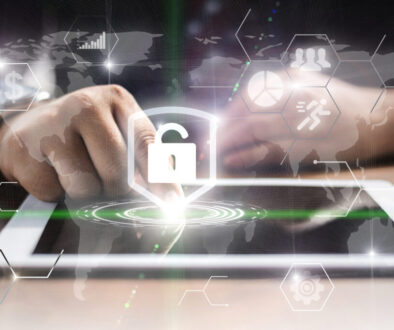Cyber Security Influencers 2024: Shaping the Future of Digital Protection
Cybersecurity influencers are individuals who have expertise and credibility in the field of cybersecurity and use their platforms to educate and inform others about important topics like online safety, data protection, and emerging threats. These influencers often have a strong presence on social media, blogs, podcasts, or YouTube channels where they share valuable insights, tips, and advice on how to stay secure in the digital world.
Importance of Cyber Security Influencers
Cybersecurity influencers play a vital role in keeping us safe online.
Education: They help us understand cyber threats and how to defend against them. Through their content, they teach us about common scams, best practices for online safety, and how to spot potential dangers.

Awareness: Cybersecurity influencers raise awareness about the importance of protecting our personal information and digital assets. By highlighting real-world examples and sharing news about cyberattacks, they help us stay informed and vigilant.
Empowerment: Their guidance empowers individuals and organizations to take proactive steps to enhance their cybersecurity posture. Whether it’s implementing strong passwords, using encryption, or staying up-to-date with software patches, their advice enables us to protect ourselves better.
Advocacy: Influencers advocate for better cybersecurity practices at both personal and institutional levels. They push for stronger regulations, improved cybersecurity standards, and greater accountability from companies and governments to safeguard our digital infrastructure.
Community Building: They foster community among cybersecurity professionals and enthusiasts. By sharing their experiences, insights, and resources, they create networks where people can collaborate, learn from each other, and collectively work towards a safer digital environment.
cybersecurity influencers serve as guides, mentors, and champions for online security, helping us navigate the complexities of the digital world and defend against evolving threats.
Characteristics of Effective Cyber Security Influencers
Effective cybersecurity influencers possess certain characteristics that help them make a meaningful impact in the digital security realm.
Expertise: Effective influencers have a deep understanding of cybersecurity concepts, trends, and technologies. They stay updated on the latest developments in the field and can communicate complex ideas in simple terms.

Credibility: They have a track record of credibility and trustworthiness within the cybersecurity community. This often comes from their professional experience, certifications, or previous contributions to the field.
Communication Skills: They excel at communicating cybersecurity topics in a clear, engaging, and accessible manner. Whether through writing, speaking, or creating multimedia content, they can effectively convey important messages to their audience.
Engagement: Effective influencers actively engage with their audience, fostering conversations, answering questions, and addressing concerns. They build rapport with their followers and create a sense of community around cybersecurity awareness and education.
Authenticity: They are authentic and genuine in their approach, sharing personal experiences, insights, and perspectives. This authenticity helps them connect with their audience on a deeper level and build trust over time.
Adaptability: Cybersecurity is a rapidly evolving field, and effective influencers are adaptable to changes in technology, threats, and best practices. They are quick to learn and adjust their messaging to stay relevant and helpful.

Advocacy: They are passionate advocates for cybersecurity best practices and online safety. They actively promote the importance of security measures such as strong passwords, multi-factor authentication, and regular software updates.
Collaboration: Effective influencers are open to collaboration and partnership with other cybersecurity professionals, organizations, and stakeholders. They recognize the value of working together to address common challenges and achieve shared goals.
Top Cyber Security Influencers of 2024
As of 2024, some of the top cybersecurity influencers include:
Brian Krebs: Renowned for his investigative journalism in cybersecurity, Brian Krebs continues to be a prominent figure in the field. Through his blog, Krebs on Security, he provides insightful analysis of cyber threats and data breaches, keeping the public informed about the latest developments.
Eva Galperin: Serving as the Director of Cybersecurity at the Electronic Frontier Foundation (EFF), Eva Galperin remains a leading advocate for online privacy and digital rights. She works tirelessly to protect individuals and organizations from cyberattacks and surveillance.
Troy Hunt: As the creator of Have I Been Pwned, a popular data breach notification service, Troy Hunt remains influential in promoting cybersecurity awareness. He actively educates the public about the importance of securing personal data and staying vigilant against online threats.
Mikko Hyppönen: With his extensive expertise in malware analysis and cybercrime investigation, Mikko Hyppönen continues to be a trusted authority in the cybersecurity community. As the Chief Research Officer at F-Secure, he shares valuable insights into emerging cyber threats and security trends.
Wendy Nather: Known for her strategic approach to cybersecurity and risk management, Wendy Nather remains a respected voice in the industry. Through her thought leadership and advocacy efforts, she promotes effective security practices and helps organizations strengthen their defense against cyber threats.
How Cyber Security Influencers Impact the Industry
Cybersecurity influencers have a significant impact on the industry in several ways:
Raising Awareness: Influencers educate people about the importance of cybersecurity and the risks of online threats. By sharing information about the latest cyberattacks, data breaches, and security best practices, they help raise awareness among individuals and organizations.
Promoting Best Practices: Influencers advocate for cybersecurity best practices such as using strong passwords, enabling multi-factor authentication, and keeping software up to date. Their guidance helps people improve their online security posture and better protect their digital assets.
Driving Innovation: Influencers often highlight emerging cybersecurity technologies and trends, encouraging innovation within the industry. Promoting new tools and solutions drives advancements in cybersecurity technology and practices.
Influencing Policy and Regulation: Cybersecurity influencers can influence policymakers and regulators to enact laws and regulations that promote stronger cybersecurity standards. They advocate for policies that protect consumer data privacy and hold organizations accountable for security breaches.
Building Community: Influencers foster community within the cybersecurity industry by connecting professionals, researchers, and enthusiasts. They provide platforms for networking, collaboration, and knowledge sharing, which contribute to the collective growth and development of the industry.
Challenges Faced by Cyber Security Influencers
Cybersecurity influencers face several challenges in their efforts to educate and advocate for better online security.
Complexity of Topics: Cybersecurity concepts can be complex and technical, making it difficult for influencers to explain them in simple terms that everyone can understand.
Rapidly Evolving Threat Landscape: The cybersecurity landscape constantly changes, with new threats and vulnerabilities emerging regularly. Keeping up with these changes and providing timely and accurate information can be challenging for influencers.
Limited Awareness and Engagement: Many people are unaware of the importance of cybersecurity or don’t fully understand the risks they face online. Influencers may struggle to engage with these audiences and convince them to take security measures seriously.
Overwhelming Amount of Information: There is an overwhelming amount of information available on cybersecurity, which can make it difficult for influencers to sift through and determine what is accurate and relevant.
Resistance to Change: Some individuals and organizations may be resistant to implementing cybersecurity measures due to perceived inconvenience or cost. Influencers must overcome this resistance and emphasize the importance of security.
Balancing Advocacy with Objectivity: Influencers must strike a balance between advocating for better cybersecurity practices and maintaining objectivity in their analyses and recommendations.
Cybersecurity Fatigue: With so many data breaches and security incidents occurring, people may become desensitized or fatigued by cybersecurity news, making it challenging for influencers to keep them engaged and motivated to take action.
Conclusion
Cybersecurity influencers play a vital role in shaping the future of digital protection. Through their expertise, advocacy, and influence, they empower individuals and organizations to navigate the complex landscape of cybersecurity effectively. As we embrace technological advancements and confront evolving threats, the guidance and leadership of cybersecurity influencers will continue to be indispensable.



